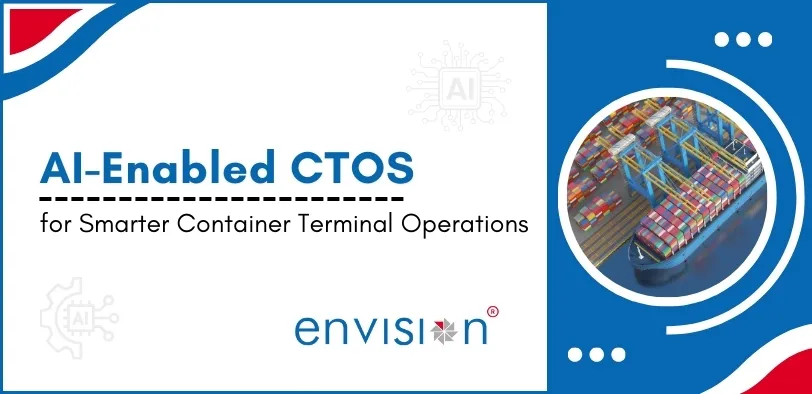Envision
Digitalization of the Manufacturing Sector

Table of content
1. Introduction
2. Digitalization of the manufacturing sector is the key element for growth.
3. Conclusion
For the growth of a nation, the manufacturing sector plays a key role. Our country with the economic boom has recorded a significant stride with the manufacturing segment coupled with infrastructural development has contributed to the economy of growth.
The segments have resulted in a major source of employment thus increasing the potential for the growth of industrial sectors across the nation and tapping the natural resources and skilled & semi-skilled forces. These massive expansions and intense competition from internal and external markets have evolved the talent pool and innovation. The schemes and benefits provided by respective governments have added to indigenizing the products and competing in world markets for a share.
Digitalization is the latest form of manufacturing system, wherein moving from a conventional manual process to an auto process using the latest manufacturing techniques available with high-quality production, which is contributing to the sustainability and profitability of the organizations. The underlined force for all the above has been contributed by the digitalization of the process’s automation of the workflows and transparency in business for better accountability.
The industry post covid has come across very significant challenges, thus innovation is a key component that will further improve the business process by contributing to the growth of the nations, Digitalization contributed to redefining the business process and improvements in turnaround, a significant reduction in wastage of raw material, knowledge empowerment to the workforce.
Ineffective Procedure:
By having a digitalization process for the industry will move the industry from a manual process to a semi-automatic process which will enable the employers in knowledge sharing and growth thereby increasing productivity and the efficiency of the organizations, this will result in improving the turnaround time and reduce the costs of the process of the manufacturing and increase the profits.
Quality Issues:
With a nation going on a rapid upwards scale of exponential growth and exports being the major targets from India to the outside nation, quality is a key element like six sigma and other standard processes which need to be redefined. With digitalization, the quality has improved considerably over the last few years which will reduce the significant percentage of wastage which contributes to the profits of the organization, thereby rejections are reduced and digitalization also enables the organizations to practice and implement JIT techniques
Inadequate visibility:
As said above digitalization can also contribute to reducing the challenges or the bottle legs at the shop floor level by automating and refining the process, and grooming for development which will further contribute to the profitability of the organization.
Addressing Customer Needs and Limited Innovation:
As markets are evolving with optimal inventory and with reduced shelf-life of storage, thus manufacturing industries with their innovative techniques are able to reorient the manufacturing process enabling to implement global manufacturing process within the organization to develop and implement accustom oriented solutions which are the currently the trend followed across the nations.
Digitalization of the manufacturing sector is the key element for growth.
Enhanced Transparency:
By automating processes, reducing errors and waste, and enabling real-time monitoring of equipment and processes, digitalization can assist manufacturers in improving efficiency and productivity. Manufacturers, for instance, can cut the time and expense associated with manual labor and increase overall efficiency by automating production processes.
Enhanced quality:
By providing real-time data on production processes, enabling early issue detection and resolution, and facilitating more precise and accurate manufacturing processes, digitalization can aid in the improvement of product quality. Manufacturers can quickly identify and resolve problems, resulting in higher-quality products and greater customer satisfaction, by using sensors and other digital tools to monitor and analyze production processes.
Cost-saving measures:
Digital revolution can assist companies to cut costs by enabling them to streamline production, cut waste, and lessen downtime. For instance, manufacturers can prevent costly repairs and downtime by using predictive maintenance tools to identify potential equipment problems before they arise.
Innovation:
Automation can help manufacturers create new goods and services more quickly and effectively, as well as incorporate cutting-edge technology into their current goods and operations. Manufacturers can prototype and test new products faster and more affordably by using digital tools like 3D printing and computer-aided design (CAD).
Improved Client Experience:
By enabling manufacturers to track and respond to customer needs effectively, thereby offering individualized and customized products and services. Digitalization can ensure manufacturers of timely delivery to enhance customer delight.
Customer Relationship Management:
In the manufacturing industry, CRM involves managing and maintaining relationships with customer profiles, suppliers, the logistic chain, and other stakeholders to ensure efficient production, timely delivery, and better interaction with regular feedback.
Talk to us today to know how our solutions can accelerate your digital transformation
Let's Talk

.webp)







.webp)
.webp)
.webp)











.webp)








%20ver1_1.webp)







.webp)
.png)
.png)







































